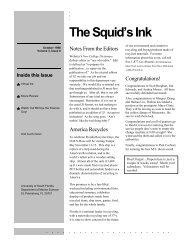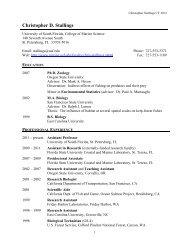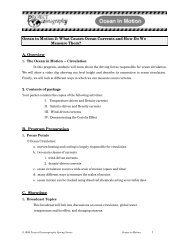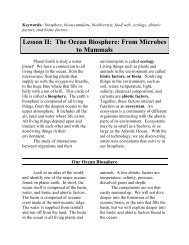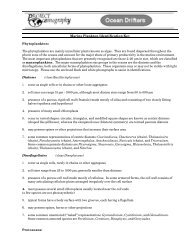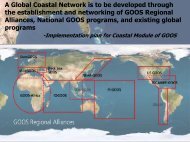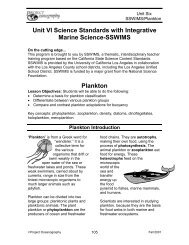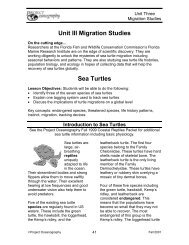Climate change futures: health, ecological and economic dimensions
Climate change futures: health, ecological and economic dimensions
Climate change futures: health, ecological and economic dimensions
Create successful ePaper yourself
Turn your PDF publications into a flip-book with our unique Google optimized e-Paper software.
• Social <strong>and</strong> <strong>economic</strong> factors in developing countries increase vulnerability to climate <strong>change</strong> <strong>and</strong> may lack the<br />
capacity to adapt.<br />
IV. There are some risks that will not affect the bottom line of insurers for the foreseeable future<br />
but can have a huge impact on millions of people <strong>and</strong> the quality of life worldwide.<br />
• Many of the groups most affected by the growing rate of tropical diseases, such as malaria (that is, the poor in<br />
developing countries), are not likely to be insurance clients in the near future.<br />
• Similarly, some of the regions most prone to extreme weather events <strong>and</strong> environmental degradation are in the<br />
developing world — <strong>and</strong> currently have little or no access to insurance.<br />
• Such uncertainties can affect the climate of investment <strong>and</strong> impact investment portfolios in the developed <strong>and</strong><br />
developing world.<br />
V. Ultimately, to grow their business in an increasingly globalized economy, insurers will need to proactively<br />
consider climate <strong>change</strong> risk in all of their global markets.<br />
106 | FINANCIAL IMPLICATIONS<br />
• Risk exclusion strategy will shrink existing markets <strong>and</strong> reduce insurer ability to pursue high growth in emerging<br />
markets, making it an unattractive strategy.<br />
• Emerging markets for insurance are growing at twice the rate of the mature markets.<br />
• Insurers may not have the option of pulling out of markets due to government regulations.<br />
• There may be opportunities to collaborate with the UN <strong>and</strong> international aid agencies to provide insurance<br />
in developing countries, using innovative products such as micro-insurance <strong>and</strong> micro-finance.<br />
• Government can play the role of insurer of last resort.<br />
• Governments can also provide incentives for insurers to enter new markets.<br />
As a result of the current uncertain environment, society is increasingly vulnerable to new risks that are not<br />
presently covered by insurers. The Millennium Development Goals that drive the United Nations programs provide<br />
guideposts with which to foster <strong>and</strong> measure success, <strong>and</strong> mixed strategies will be needed to manage <strong>and</strong><br />
reduce risks in the course of achieving those goals.<br />
Wind Farm<br />
Image: Photodisc



